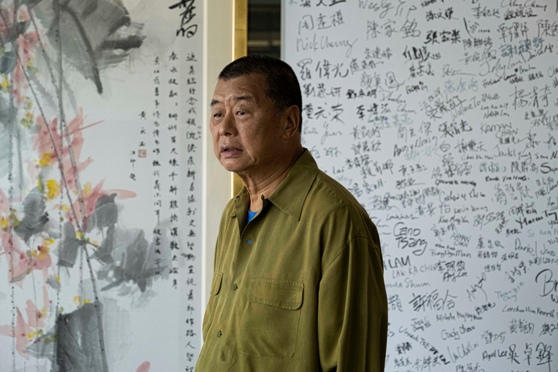Hong Kong court sentences Lai to prison over Tiananmen vigil

By Vivian Wang and Austin Ramzy
HONG KONG — A Hong Kong court Monday (13) sentenced former media mogul Jimmy Lai and seven other prominent pro-democracy activists to prison for their roles last year in trying to commemorate China’s June 4, 1989, crackdown on peaceful protesters in Tiananmen Square.
The sentences — from 4 to 14 months — were the latest example of the wide-ranging crackdown on dissent and free speech in the city, a former British colony that once had significantly stronger civil liberties than the rest of China. While this case was not prosecuted under a stringent national security law imposed on Hong Kong by Beijing last year, several of the defendants, including Lai, also face separate charges under that law.
Lai and the other activists — including Chow Hang-tung, Gwyneth Ho and Lee Cheuk-Yan — gathered June 4, 2020, in Victoria Park before an annual vigil organized by the Hong Kong Alliance in Support of Patriotic Democratic Movements of China, a pro-democracy group. The alliance had hosted those vigils, a potent symbol of Hong Kong’s differences from the rest of China, in the park for three decades. But the government banned the gathering last year, citing the coronavirus pandemic, and again this year.
Lai received 13 months in prison from the judge, Amanda J. Woodcock. Lee, a former lawmaker and leader of the alliance, received the heaviest sentence, 14 months. A former chairman of the opposition Democratic Party, Wu Chi-wai, was sentenced to four months and two weeks.
Many of the eight handed prison terms Monday had already been sentenced in other cases related to the pro-democracy protests that roiled Hong Kong in 2019. Lai, for example, had already received 20 months; he will serve his new term concurrently. But he faces further charges under the security law, which can bring up to life imprisonment.
In statements read in court before the sentencing, Lai and his co-defendants made clear that they felt no regret for defying the government’s ban.
If commemorating the massacre was a crime, Lai wrote in a statement read by his lawyer, Robert Pang, “let me suffer the punishment of this crime, so I may share the burden and glory of those young men and women who shed their blood on June 4 to proclaim truth, justice and goodness.”
While authorities have tried to characterize the 2019 protests as widely violent to justify their crackdown, the case made clear that even nonviolent, seemingly innocuous actions had become potentially risky.
Lai and Chow, a vice chairwoman of the alliance, were convicted by Woodcock on Thursday (9) of inciting others to take part in an unauthorized assembly. By participating in a news conference where they “each lit a candle at the same time” and “raised a hand in unison,” the judge wrote, they had encouraged others to participate in the banned vigil.
Lai did not participate in the vigil itself and left the park after about 15 minutes. Still, the judge wrote, “His presence at that press conference was a deliberate act to rally support for and publicly spotlight the unauthorized assembly that followed. He need not use words of incitement to intend to incite others.”
Chow and Ho, a journalist turned politician, were convicted of participating in the unauthorized assembly. More than 20 other defendants, including the others sentenced Monday, had already pleaded guilty in relation to the gathering.
Chow also delivered an impassioned statement before the sentencing, in which she condemned the government for using public health reasons to try to justify what she called an explicitly political prosecution.
“Let us not delude ourselves that this is all about COVID-19 and that the criminalization of the vigil is only an exceptional measure at an exceptional time,” she said, reading her own statement aloud. “What happened here is instead one step in the systemic erasure of history, both of the Tiananmen Massacre and Hong Kong’s own history of civic resistance.”
She added, “In closing its eyes to the obvious, the court risks making itself irrelevant to the ailments of our times.”
Chow has also been charged under the security law.
Even before Monday’s sentencing, many of the people and organizations involved had been targeted by the government. The Hong Kong Alliance disbanded in September, after officials accused it of being an “enemy of the state.” Apple Daily, the pro-democracy newspaper that Lai founded, also shuttered in July after police raided its newsroom and arrested top editors.
-New York Times

